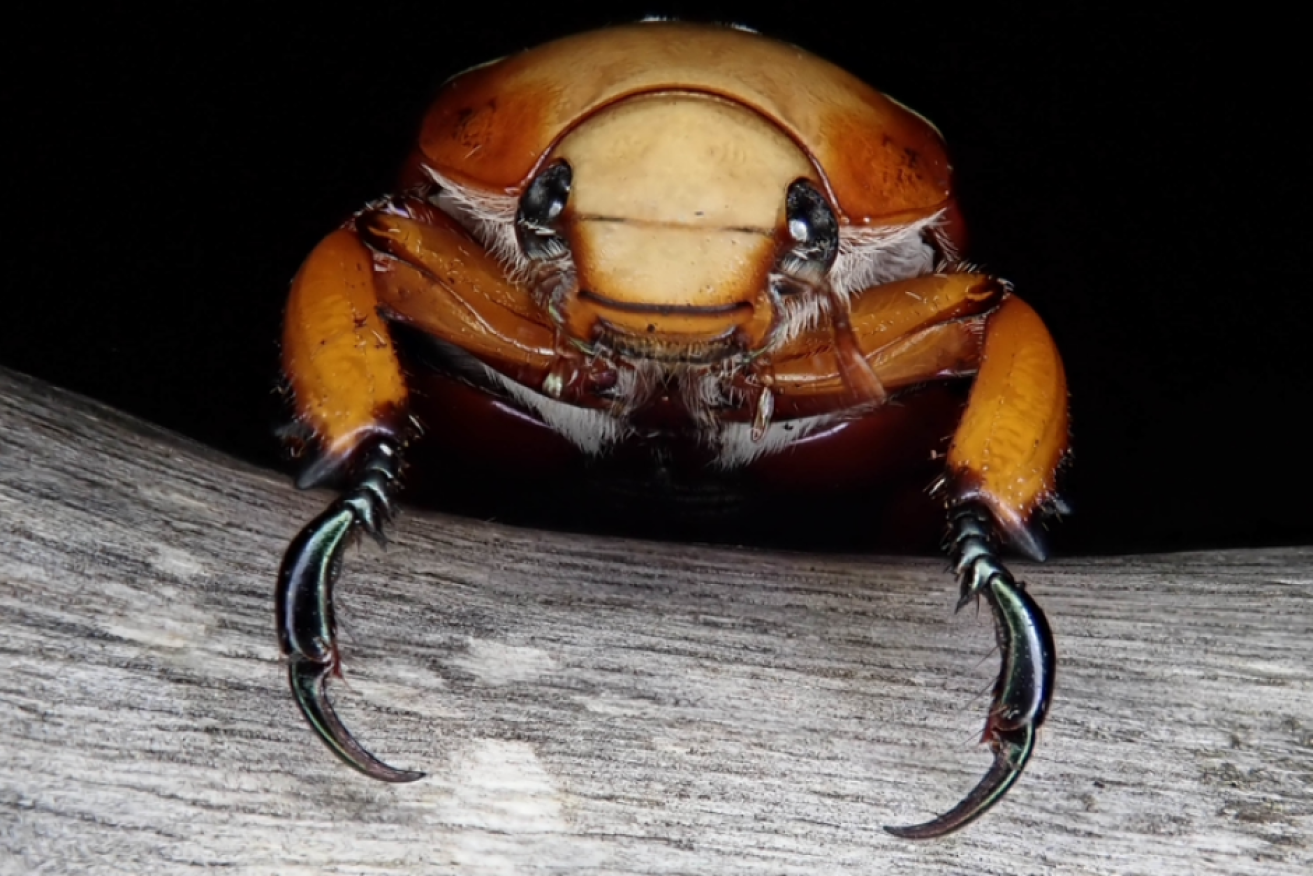Christmas beetles are slowly disappearing, and we’re not sure why

Many people remember hordes of beetles descending on Christmas dinner. Photo: ABC Open/Charlie Spagalli
Have you seen any Christmas beetles this year? Scientists say although populations differ between states, it is just one of many insects slowly disappearing and they are not sure why.
Tanya Latty, an entomologist from the University of Sydney, said it was a question many people had been asking.
“What we do know at least anecdotally is that lots of people have said, ‘When I was a kid there would be Christmas beetles everywhere and now you rarely see them’,” Dr Latty said.
“And that seems to be really consistent, which is pretty decent evidence that there may be something going on, that their populations could be going down.”

An encounter with a sparkly beetle is, for many Australians, a sign that Christmas time has truly arrived. Photo: ABC Open/Greg Miles
There are around 35 species of Christmas beetles across Australia, with most emerging between mid-November and late December when the larvae hatches.
Dr Latty told AM there could be many reasons people do not see them as often, with habitat loss being the main cause.
“Christmas beetles have a lifecycle where the larvae feed on things like grasses and the adults feed on mature gum leaves,” Dr Latty said.
“If you start to lose a lot of that Cumberland Plain Woodland, which is the habitat we think most of the Christmas beetles thrive in, then you start to see a decrease.”
Macquarie University entomologist Chris Reid said climate change could be a contributing factor.
“Drier spring weather actually can delay the emergence of adults from the pupal stage, so instead of coming out as adults – the friendly Christmas beetles we’re familiar with, the pupae – instead [they] stay in the pupal stage for another season and this leads to lower numbers of adults that we can see out and about,” Dr Reid said.
While no definitive studies have been conducted on the decline in Christmas beetles, scientists have noted population numbers could vary from state to state.
“In New South Wales people nostalgically remember hordes of Christmas beetles descending on their Christmas parties, which is no longer happening,” Dr Reid said.
“However, Queensland sources on the other hand claim that populations have actually boomed in recent years due to the increase in grassland, where the larvae feed on the grass roots and they actually cite the adults as a pest species.”

Christmas beetle populations in Queensland have boomed in recent years due to the increase in grassland, providing food for larvae. Photo: Queensland Museum
‘The little things that run the world’
Dr Latty said the Christmas beetle was one of many insects around the world in decline, and warned that humans did not know what effect that would have on the ecosystem.
“Unfortunately in the last two or three years, long-term data sets have come out from around the world where people have sampled insects at the same place, in the same time way for long enough to actually be able to show that we’re looking at in some places, up to 80 to 90 per cent declines in our insect populations.”
Dr Latty described insects as “the little things that run the world”, and said their worldwide decline across species was catastrophic.
“They underpin many of our ecosystems. They are food for bigger things. They clean up the waste. They’re the pollinators, predators that keep pest populations under control,” she said.
“They do all these essential jobs and they’re starting to decline and we don’t know the impact that will have.”
–ABC








